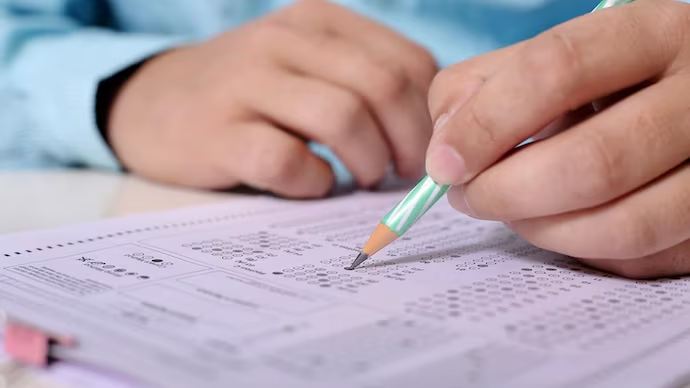Official Language India – 8th Schedule
Languages spoken in India belong to several language families, the major ones being the Indo-Aryan languages spoken by 75% of Indians and the Dravidian languages spoken by 20% of Indians.
- Official language of Union should be Hindi or Devanagari script.
- However, for a period of 5 years from the commencement of constitution, English language would continue to be used for all the official purposes of union, for which it was being used before the commencement of constitution.
- President should, at the expiration of 5 years & thereafter at the expiration of 10 years from such commencement, by order constitute a commission to make recommendations regarding progressive use of Hindi language, restrictions on use of English language & other related issues.
- Parliament may by law provide for continued use of English language for specified purposes, even after 15 years from the commencement of constitution.
- A committee of 30 members (20 LS & 10 LS) should be constituted to examine recommendations of commission & to report its views to President.
Advertisement: World’s fastest hosting – secure, reliable, limited-time offer! Click now!
Regional Languages
- Legislature of state may adopt any one or more of languages in use in state or Hindi as official language of the state. Until that is done, English is to continue as official language of the state.
- For the time being, English would remain the official language for communication b/w state & union or b/w various states. But 2 or more states are free to agree to use Hindi for communication b/w themselves.
Also read: Special Provisions for States Article 371
Language of Judiciary
- All the proceedings in SC & in every HC as well authoritive text of all bills, acts, ordinances etc. should be in English unless parliament provides otherwise.
- Governor of the state, with previous consent of the President can authorize the use of Hindi or any other official language of the state in the proceeding of the HC of state, but not wrt the judgment, Decrees & order passed by it
📝 20 Key Points
-
Article 343 of the Indian Constitution designates Hindi in Devanagari script as the official language of the Union.
-
English continues to be used for official purposes of the Union along with Hindi (as per the Official Languages Act, 1963).
-
The Constitution does not declare any national language; Hindi is the official language, not national.
-
The Official Languages Act, 1963 extended the use of English for official work beyond 1965.
-
The Eighth Schedule of the Constitution originally included 14 languages.
-
Currently, there are 22 languages listed in the Eighth Schedule.
-
Languages can be added to the Eighth Schedule by constitutional amendment.
-
The purpose of the Eighth Schedule is to promote and preserve linguistic diversity.
-
Recognition in the Eighth Schedule allows languages to be used in exams like UPSC, and receive official support.
-
Article 344 provides for a Commission on Official Language to review language use.
-
Articles 345–347 allow states to adopt any language used in the state as official.
-
States are free to choose their own official languages, including regional ones.
-
The Constitution ensures the development of Hindi and promotion of other languages (Article 351).
-
The Official Language Commission was constituted in 1955 and submitted its report in 1956.
-
Parliamentary Committee on Official Language was established in 1976 to review language policy implementation.
-
The three-language formula encourages learning of Hindi, English, and a regional language.
-
Some states like Tamil Nadu oppose Hindi imposition, advocating for linguistic autonomy.
-
English remains the language of the judiciary and higher education in most states.
-
The 22 languages in the Eighth Schedule include Assamese, Bengali, Gujarati, Hindi, Kannada, etc.
-
Demands for inclusion of more languages (e.g., Bhojpuri, Rajasthani) are currently under review by the government.
If you’re passionate about building a successful blogging website, check out this helpful guide at Coding Tag – How to Start a Successful Blog. It offers practical steps and expert tips to kickstart your blogging journey!
For dedicated UPSC exam preparation, we highly recommend visiting www.iasmania.com. It offers well-structured resources, current affairs, and subject-wise notes tailored specifically for aspirants. Start your journey today and share your feedback about Official Language India.









